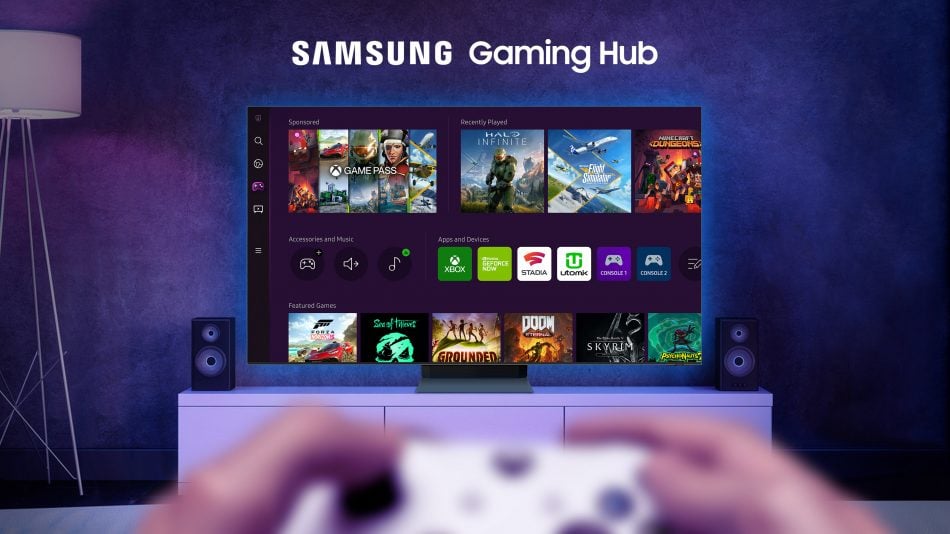If someone were to tell me a year ago that Samsung is the answer to cloud gaming, I would've probably laughed or looked bewildered thinking of that notion. I also would've been wrong to doubt that hypothesis. Because here we are in 2022, with Samsung arguably becoming one of the most valuable partners for cloud gaming service providers overnight.
Full disclosure: as a PC and console user, I never was a fan of cloud gaming, or at the very least, I wasn't fond of how these services used to be delivered to their customers until Samsung's Gaming Hub came along. Regardless of whether or not cloud gaming is the way of the future, I feel like the inherent problem cloud gaming had from day one was the foundation on which it was built, ideologically speaking. Up until recently, the biggest strength of cloud gaming was that it allows customers to play games instantly without having to download huge files. And although that is a nice perk, it's not nearly enough to put cloud gaming on the map.
Cloud gaming, in most cases, has required some form of dedicated hardware, such as a PC or a gaming console. This limitation went against the very idea of accessibility. And while Google attempted to lower hardware requirements for cloud gaming through Stadia, that service failed due to limited availability/reach and arguably a purchase-based model that honestly didn't make much sense and denied the advantages of cloud gaming.
Enter Samsung Gaming Hub — the most convenient cloud gaming delivery system with almost limitless exposure
Samsung announced Gaming Hub at CES 2022 and released it onto select 2022 TVs later in the summer. And to be precise, Samsung didn't launch a cloud gaming platform of its own, but instead — and as the “Hub” name suggests — it brought the most popular cloud gaming service providers together in one place. Gaming Hub is a TV app that offers quick and easy access to a handful of existing cloud gaming services, allowing TV users to choose which cloud platforms they want to sign up for without having to look far and wide for answers.
Furthermore, Gaming Hub puts cloud gaming on the map for millions of TV customers without requiring dedicated hardware — aside from a controller. And the beauty of this high level of accessibility and almost limitless exposure is that it allows even people who have never experienced video games to see what this ever-growing interactive entertainment medium is all about. It's all right there on the TVs they bought for cable and subscription-based streaming services.
Most TV owners are used to the concept of streaming entertainment, even if they haven't played video games before. Gaming Hub brings gaming to the living room without needing dedicated hardware, and it's all through the same concept of streaming data over the internet. Most cloud gaming services available through Gaming Hub are subscription-based, so again, there's a sense of familiarity. Gaming Hub has brought gaming closer to people who have never played video games or didn't know they'd want to try them. And this might make it the most valuable asset cloud gaming service providers could have ever hoped for.
Samsung announced this week that Gaming Hub is coming to hundreds of millions of 2021 TVs by the end of the year. It will also be available for future 2023 TV models, which means Gaming Hub will become almost ubiquitous. And keep in mind that Samsung is the world's most popular TV brand. With no dedicated hardware requirements, and given this high level of exposure, Gaming Hub feels like the perfect answer to the problems of cloud gaming.
Samsung’s TV app sets the best example of how cloud gaming services should be distributed. It doesn’t pretend to replace dedicated gaming hardware through perks like “no download times,” and it doesn’t ask you to buy a dongle or a cloud gaming box, but what it does is bring the concept of gaming to the living rooms of millions of TV users. And it may have set the tone for changing the gaming landscape forever. I may not be an avid cloud gaming fan, but I certainly like the way Gaming Hub does it.







